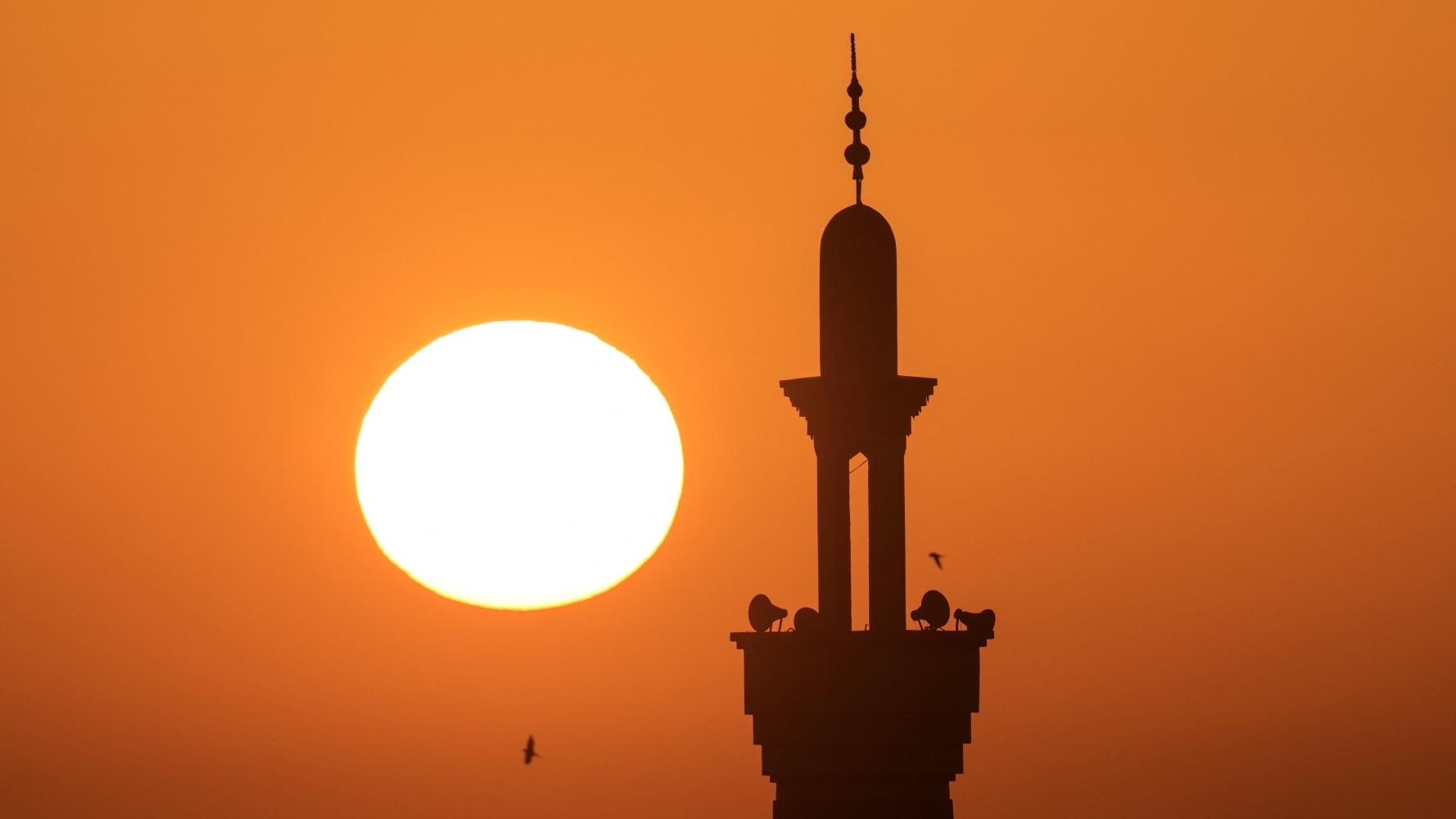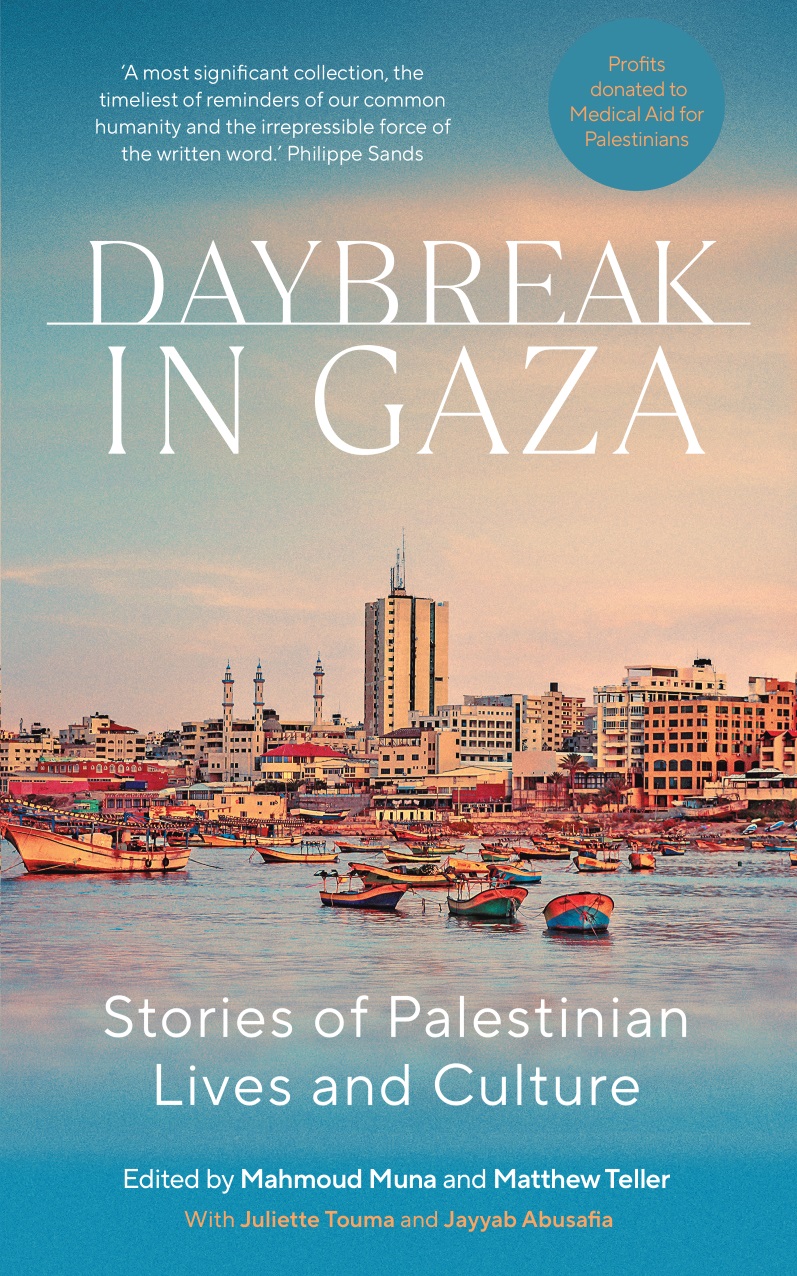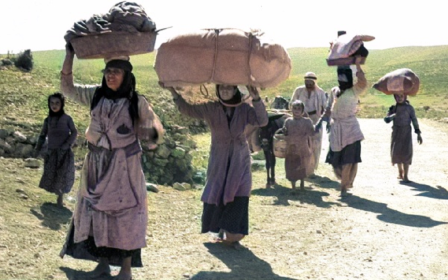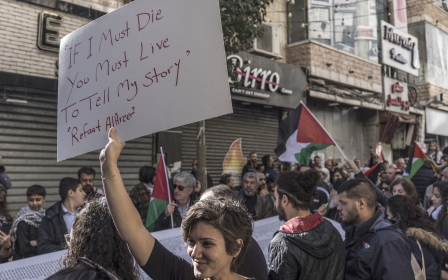Daybreak in Gaza: New anthology aims to preserve a culture being destroyed

The immediate and ever present threat of death is the primary concern for the 2.3 million Palestinians who live in the besieged Gaza Strip amidst Israel's devastating military campaign.
As of early July, 35 percent of the territory's buildings have been destroyed, at least 38,900 people are confirmed to have been killed, while another 10,000 are buried under rubble.
According to UK medical journal the Lancet, the total death toll caused by the conflict could be as high as 186,000.
Israel faces charges of genocide at the International Court of Justice and its leader Prime Minister Benjamin Netanyahu faces a potential International Criminal Court arrest warrant for crimes against humanity and war crimes.
With near total political and military backing from its allies in Washington DC and no tangible progress in attempts to reach a ceasefire, the devastation will likely continue for months.
New MEE newsletter: Jerusalem Dispatch
Sign up to get the latest insights and analysis on Israel-Palestine, alongside Turkey Unpacked and other MEE newsletters
For the people of Gaza, there is a Gaza that was and a Gaza that is.
The latter is their current reality of death, deliberate starvation and abandonment by an international order whose only purported reason for existing is to prevent suffering like their own.
The former is the world before the 7 October; one still besieged by an Israeli blockade and subject to its intermittent military assaults but nevertheless providing enough breathing space for the rudiments of life to continue.
Published by Saqi and set for release on 3 October, Daybreak in Gaza: Stories of Palestinian Lives and Culture is an anthology of essays, which hopes to capture and preserve both of these worlds.
Described by its publishers as a record of heritage, which reveals an "extraordinary place and people", the collection will feature the stories of the Palestinians who have spent their entire lives under occupation and suffered decades of war.
"Vignettes of artists, acrobats, doctors, students, shopkeepers and teachers across the generations offer stories of love, life, loss and survival. They display the wealth of Gaza’s cultural landscape and the breadth of its history." Saqi says in its announcement of the book.
Real-life characters within its pages include Basel El-Maqousi, the photographer and artist, offering art therapy sessions to children living amidst the rubble of their homes, and Hind Joudah, who meditates on what it means to be a poet during war.
Its editors include the writer and publisher Mahmoud Muna, who runs Jerusalem’s Educational Bookshop and the Bookshop at the American Colony Hotel; and British author Matthew Teller, whose book The Nine Quarters of Jerusalem was previously featured on Middle East Eye.
The Palestinian culture of Gaza is one that faces the existential risk of erasure. Israel's leaders place a thin veil on their hope to expel its population and even rebuild settlements the state abandoned in 2005.
Coupled with that threat is the destruction of its heritage and culture, such as the attacks on historic religious sites like the ancient Grand Omari Mosque or the 1,600-year-old Church of Saint Porphyrius.
Thousands of students and scores of scholars have also been killed in what Queen Mary University legal scholar Neve Gordon, described as “educide”.
Daybreak in Gaza is therefore an important attempt to preserve a culture under attack and will be an early contribution to a body of literature that will likely be studied for decades to come.
Daybreak in Gaza: Stories of Palestinian Lives in Gaza is available for pre-order at Saqi Books. Profits will be donated to Medical Aid for Palestinians.
Middle East Eye delivers independent and unrivalled coverage and analysis of the Middle East, North Africa and beyond. To learn more about republishing this content and the associated fees, please fill out this form. More about MEE can be found here.





